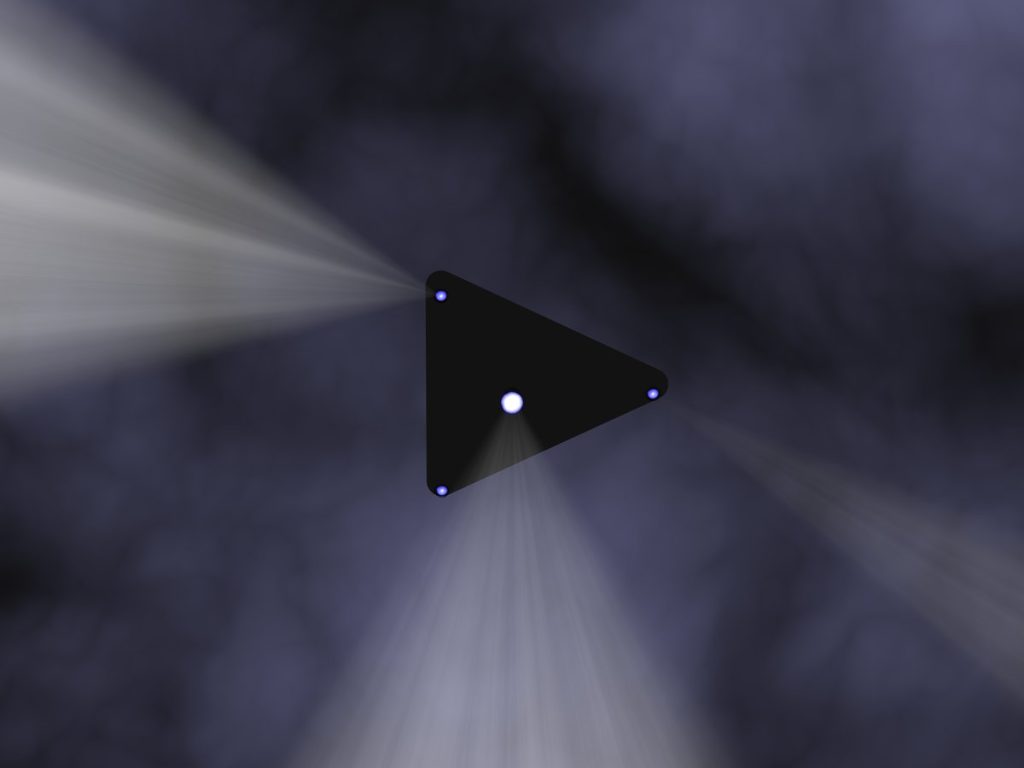
With UFOs now the subject of official reports in the USA, two Belgian experts have shared their knowledge and uncertainties on the controversial subject of UFOs, including the famous Belgian UFO wave.
One was Jean-Marc Wattecamps, a Professor of Geography and Earth Sciences, and a ufologist in charge of field investigations for COBEPS (Belgian Committee for the Study of Space Phenomena) - a group collecting UAP witness reports, following in the footsteps of the SOBEPS (Belgian Society for the Study of Space Phenomena), which has helped forged Belgian ufology.
The other was Franck Istasse,a journalist with RTBF (the French-speaking community’s Belgian public radio and television) and author of the podcast series "La fascinante histoire des ovnis" (The fascinating story of UFOs).
Is ufology a science?
Without detours, the presenter asked his guests about the possibility that some UFOs are piloted by other species coming to observe us.
Jean-Marc Wattecamps reminded us that ufology is the study of "unidentified flying objects", and that it has a scientific interest beyond speculation by the public on the subject. He goes on to point out that COBEPS' activities consist in investigating, communicating about its investigations, and doing research, adding, "I don't know if you’d call it science, but we have tried and tested repetitive methods, and we train investigators."
For journalist Franck Istasse, ufology is not a science because the phenomenon is unpredictable and non-reproducible. According to him, research is based above all on witness reports, which he finds disturbing, from ordinary people who have observed strange events and who are often deeply marked by the experience.
Jean-Marc Wattecamps referred to the great variability in the reactions of witnesses. Many have vivid memories of the experience, others are even shocked, while some don't dwell on their observation.
The Belgian UFO wave

The discussion quickly moved on to the wave of UFO sightings that began in late November 1989 and lasted some 18 months.
The journalist and the ufologist together recounted the Belgian and international media frenzy and public fascination, the 2,000 witness reports from civilians as well as several gendarmes (the military police), the hundreds of investigation reports and the interventions of the Belgian Air Force's F-16s. SOBEPS has documented and analyzed numerous testimonies and worked in collaboration with military authorities to try to understand the phenomenon. The journalist mentionned the voluminous investigation reports that the association has published.
Franck Istasse believes that something has happened in Belgium, but assumes that he has no answers as to the nature of the sightings, despite his long-standing interest in the subject, and his meetings with members of SOBEPS and COBEPS.
The journalist concludes by saying that there are many testimonies but no proof.
Ufologist Jean-Marc Wattecamps contradicts this assertion, arguing that there is testimonial evidence: eyewitness accounts. And he adds:
"Something happened, something extraordinary (...) you can't dismiss that by saying there's no evidence.
The doubt
The presenter mentionned the extraterrestrial hypothesis again, prompting a reaction from Franck Istasse:
"Unfortunately, this idea of extraterrestrials, even if it fascinates me (...) pollutes the ufology debate".
However, the journalist admits to having been convinced of this hypothesis during his adolescence, and would still like to believe in it, adding that the extraterrestrial presence could be so strange as to escape our perception. Yet he insists on the sincerity of the testimonies. He then declares that his convictions fluctuate widely."There are skeptics and believers, but we focus on the method," explains Jean-Marc Wattecamps about the members of COBEPS. On a more personal note, he confesses to having believed in a psychological phenomenon for some time, before once again believing in the extraterrestrial hypothesis.

The Pentagon videos
The presenter discussed the three videos authenticated in recent years by the Pentagon. The guests pointed out that this interest in UFOs on the part of the US government and the media has been observed on several occasions, and consider ufological history to be cyclical. They mentionned the 1947 wave, during which the US Air Force studied the phenomenon but failed to identify it fully.
Franck Istasse: "As early as 1947, pilots in the United States saw astonishing things above top-secret bases.”
Jean-Marc Wattecamps seems optimistic about the development of the subject in the United States: "It's interesting that we're going to open up the possibility for military personnel to testify, whereas before they could say absolutely nothing."
The effects of an advanced technology?
The ufologist also believes that the subject of UFOs has the potential to advance all fields of science. He recounted an astonishing case from 2011, where elements of one particular witness reports, such as darkening glasses, a flashlight going out and a young dog barking, were scientifically consistent with the effects of ultraviolet, ionization and ultrasound, which could be emitted by the theoretical propulsion of a flying saucer.
These are indeed intriguing coincidences.

A mystery that stands the test of time
The guests and host expressed no definitive convictions on the origin of the UFO phenomenon, and the Belgian Wave remains unsolved after three decades. Despite countless accounts from credible witnesses around the world and the serious work of ufologists, the search seems to be repeating itself without any major breakthroughs.As NASA begins a study, and Congress and the U.S. Senate each hold public hearings on the subject, will new information emerge from military testimony? Will global scientific research finally get to grips with the subject? Will we finally get disappointing or fascinating answers?
Main picture : Photography by Tom Swinnen

